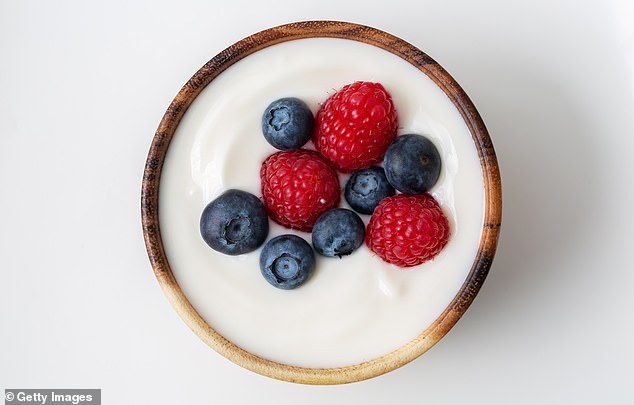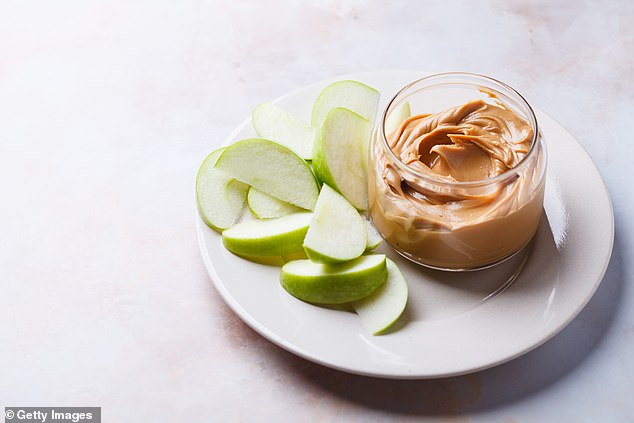Cravings are incredibly common; they can hit us anywhere and at any time. And they’re specific. A biscuit at 11am to tide us over until lunch, a cup of coffee at 3pm to beat the afternoon slump, or a piece of chocolate (or two) after dinner; food cravings are typically only satisfied by ‘unhealthy’ foods high in sugar, salt or fat.
To make healthier choices next time they strike, it’s important to question what’s causing these cravings in the first place. A blood sugar dip? Stress? Tiredness? Emotional triggers? Or is it a deficiency in our diet? As Dr Federica Amati, head nutritionist at ZOE, explains, different cravings can signal different needs.
Below, she details what your food cravings (and your body) are trying to tell you, when they usually occur and how to manage them by eating different, more nutritious foods (because they may be impossible to avoid altogether).
1. Sweet cravings
What is your body signalling? Sweet cravings are often a signal that you need a quick energy boost, as glucose is the primary fuel for our brain and body. They can also arise when we are seeking emotional comfort.
When does this usually occur? These cravings are common after meals, especially those high in refined carbs that may have caused a blood sugar dip. They can also arise during periods of stress, tiredness or boredom, or simply out of habit (e.g., expecting something sweet after dinner). Poor sleep can also make us crave sweet things.
What should we eat/drink? To satisfy the craving without missing the opportunity for a nourishing meal or snack, try combining something sweet with fibre, healthy fats and protein. This slows digestion and provides a more sustained release of energy. Try Greek yoghurt with berries, dark chocolate with a handful of nuts, or whole-grain toast with peanut butter and honey and fruit

Craving something sweet? Try Greek yoghurt with berries
2. Salty cravings
What is your body signalling? Salt cravings can be a need for electrolytes, especially sodium, or a sign of dehydration. This can also be a sign of stress, as cortisol (the stress hormone) can increase our desire for salty foods.
When does this usually occur? This is common after an intense workout, in hot weather, or after drinking alcohol. It also frequently occurs during periods of high stress.
What should we eat/drink? First, rehydrate with water. Then, opt for high-quality savoury snacks, like a handful of nuts or home-roasted chickpeas. You could also add fermented foods like miso or sauerkraut to your next meal. Do what you can to manage the underlying stress, if this is the cause.
3. Carbohydrate cravings
What is your body signalling? As with sweet cravings, craving for carbs often signals a need for energy, as carbohydrates are our body’s main energy source. They can also be tied to emotional triggers, as carbohydrates provide comfort by boosting serotonin and triggering the brain’s reward system.
When does this usually occur? These cravings are common if you haven’t eaten for a while, or if your previous meal was low in carbohydrates. They can also occur in the evening or when you’re feeling tired, stressed, or emotionally drained.
What should we eat/drink? Choose complex carbohydrates that provide a slow, steady release of energy. Think whole grains like buckwheat and pearl barley, legumes and starches like sweet potato.
4. Fatty cravings
What is your body signalling? These are often a sign of a need for more satisfying meals, for a more concentrated source of energy.
When does this usually occur? These may occur if you haven’t eaten enough throughout the day. They can also be more frequent during times of stress or boredom.
What should we eat/drink? Focus on healthy fats. Grab a handful of nuts or a spoonful of nut butter with an apple. You could also try half an avocado or a few slices of cheese with some whole-grain crackers. These provide satiety and healthy fats without the inflammatory effects of low-quality fried foods.

Struck by fatty cravings? Grab a spoonful of nut butter with an apple
5. Protein cravings
What is your body signalling? Craving protein can be a sign that your body needs to repair or replenish, often after you’ve been physically active. You may also be seeking protein to feel more satiated, as it’s a key macronutrient for staying full and regulating appetite.
When does this usually occur? Common after a strenuous workout, or if your previous meals lacked enough protein, leaving you feeling hungrier sooner.
What should we eat/drink? Focus on lean sources of protein like grilled chicken, oily fish, yoghurt, eggs or plant-based options like lentils, beans, tofu and chickpeas.
6. Fresh food cravings
What is your body signalling? Your body is likely seeking vitamins, minerals, and antioxidants.
When does this usually occur? Often after a period of eating heavy, rich or processed meals, or when you’re feeling sluggish.
What should we eat/drink? Add a wide variety of plant foods to your meals and snacks, like fresh fruit, roast veggies, leafy greens, beans and legumes. These foods will benefit you and your gut microbiome.
7. Caffeine cravings
What is your body signalling? Your body is seeking a quick energy boost. This can be a sign of physical fatigue, lack of sleep, or sometimes it’s simply a habit.
When does this usually occur? Most often in the morning, during a mid-afternoon slump; whenever you’re feeling particularly tired.
What should we eat/drink? Try to address the underlying issue by practising sleep hygiene and nourishing your body with well-balanced meals for sustained energy throughout the day. There’s nothing wrong with a cup of coffee, but you may want to try green tea or matcha for a gentler caffeine and antioxidant boost.
